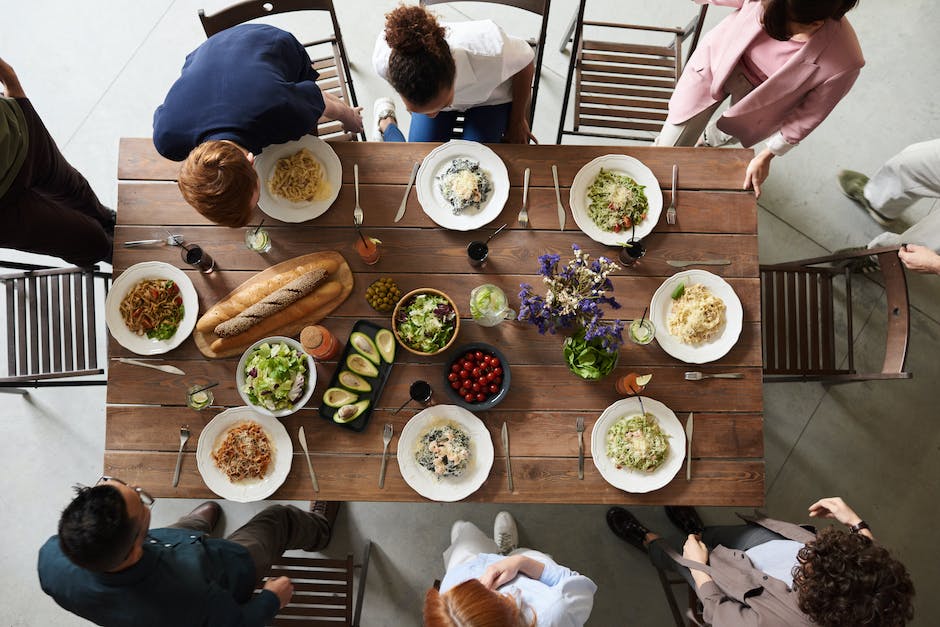The Pros and Cons of a Course Dinner
Exploring the Benefits and Drawbacks
Course dinners, also known as tasting menus or prix fixe menus, offer a curated dining experience with a set number of courses. These meals are often found in upscale restaurants and are designed to showcase the chef's creativity and the finest ingredients. While course dinners can be an exquisite experience, there are both advantages and disadvantages to consider before indulging in this culinary adventure.
In this article, we will delve into the pros and cons of indulging in a course dinner. From the sensory delights of carefully crafted dishes to the potential drawbacks of cost and time commitments, we'll explore what makes this dining experience unique and whether it's the right choice for you.
Pros
A course dinner offers an opportunity to indulge in culinary creativity and experience a carefully curated selection of dishes. Each course is meticulously crafted to showcase the chef's skills and creativity, leading to a unique and memorable dining experience. From innovative flavor combinations to exquisite presentation, course dinners can delight the senses and provide a true culinary adventure.
Gastronomic Exploration
Course dinners provide a platform for gastronomic exploration, allowing diners to savor a variety of flavors and textures within a single meal. Each course offers a new experience, inviting diners to expand their palate and appreciation for diverse culinary techniques and ingredients. This exposure to different tastes and preparations can broaden one's understanding of food and enhance the overall dining experience.
Showcase of Culinary Skills
A course dinner allows chefs to showcase their culinary skills and creativity, often presenting dishes that are not available on the regular menu. This culinary innovation and attention to detail can elevate the dining experience, providing diners with a sense of exclusivity and the opportunity to enjoy dishes that are truly special and unique.
Elevated Dining Experience
By offering a multi-course dining experience, course dinners elevate the overall dining experience, turning a meal into an event. The pacing and progression of the courses create a sense of anticipation and indulgence, allowing diners to fully immerse themselves in the culinary journey and enjoy an extended period of gastronomic pleasure.
Social Interaction
A course dinner provides an excellent opportunity for social interaction and bonding. With multiple courses and breaks between them, guests have ample time for conversation and enjoyment, making it an ideal setting for creating lasting memories and strengthening relationships.
Culinary Education
Attending or hosting a course dinner can be an educational experience for participants. Each course presents an opportunity to learn about different cooking techniques, flavor pairings, and cultural influences, enhancing one's culinary knowledge and appreciation.
Missing a pro?
Let us know which pro you are missing!
Cons
While a course dinner can be a tantalizing prospect, there are certain considerations and potential drawbacks that come with this dining experience. From the financial investment to the time commitment, it's essential to weigh the cons before deciding to embark on a course dinner.
Financial Investment
Participating in a course dinner typically comes with a higher price tag compared to ordering à la carte or opting for a set menu. The cost of sourcing premium ingredients, the skill and artistry of the chefs, and the overall dining experience contribute to the elevated price point. For budget-conscious diners, the expense of a course dinner may pose a significant drawback.
Time Commitment
A course dinner often requires a substantial time commitment, with multiple courses being served over an extended period. While this pacing is intentional to allow for full appreciation of each dish, it may not be suitable for diners with limited time or those who prefer a more expedited dining experience. Additionally, the duration of the meal may impact other plans or obligations for the evening.
Dietary Restrictions and Preferences
For diners with specific dietary restrictions or strong food preferences, a course dinner may present challenges. The fixed menu and predetermined courses may limit options for customization, making it difficult to accommodate individual dietary needs. While some establishments may offer alternatives, the inherent structure of a course dinner can be less accommodating for those with dietary limitations.
Logistical Challenges
Organizing a course dinner involves significant planning and coordination. From menu selection and ingredient sourcing to seating arrangements and timing, there are various logistical challenges to overcome, which can be daunting for both hosts and guests.
Pressure and Expectations
The formal nature of a course dinner can create pressure for both hosts and guests. There may be expectations regarding attire, behavior, and conversation, leading to feelings of stress or discomfort for some individuals. Additionally, hosts might feel pressure to ensure that each course meets high culinary standards.
Missing a con?
Let us know which con you are missing!
Conclusion
In conclusion, a course dinner presents the opportunity to immerse oneself in a culinary journey, exploring a series of carefully crafted dishes that showcase culinary innovation and expertise. However, it's important to consider the potential drawbacks, such as the financial investment, time commitment, and limitations in accommodating specific dietary preferences. Ultimately, the decision to indulge in a course dinner should involve a thoughtful assessment of both the benefits and challenges associated with this distinctive dining experience.
What do you think?
Do you think the pros outweigh the cons?







